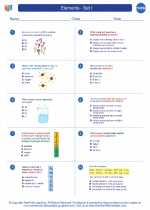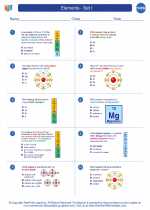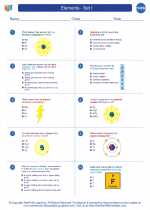Conduction
Conduction is the process by which heat or electricity is directly transmitted through a substance when there is a difference of temperature or of electrical potential between adjoining regions, without movement of the material.
Heat Conduction
In the context of heat conduction, it occurs when there is a temperature difference between two parts of a conducting medium, such as a solid, liquid, or gas. The heat is transferred from the region of higher temperature to the region of lower temperature. The rate of heat conduction is determined by the thermal conductivity of the material and the temperature gradient.
Factors Affecting Heat Conduction
- Temperature Difference: The greater the temperature difference, the greater the rate of heat conduction.
- Material's Thermal Conductivity: Materials with higher thermal conductivity conduct heat more effectively.
- Cross-Sectional Area: A larger cross-sectional area allows for more heat conduction.
- Length of the Conductor: Longer conductors result in slower heat conduction.
Electrical Conduction
Electric conduction is the movement of electrically charged particles through a transmission medium. In conductors, such as metals, electric conduction occurs via the movement of free electrons. The rate of electrical conduction is determined by the material's electrical conductivity and the potential difference (voltage).
Factors Affecting Electrical Conduction
- Material's Electrical Conductivity: Materials with higher electrical conductivity conduct electricity more effectively.
- Potential Difference (Voltage): A higher potential difference results in a greater rate of electrical conduction.
- Temperature: In some materials, electrical conductivity may be affected by temperature. For example, in semiconductors, conductivity increases with temperature.
Study Guide for Conduction
When studying conduction, it's important to understand the fundamental principles and factors that influence heat and electrical conduction. Here are some key points to focus on:
- Understand the concept of conduction and be able to differentiate between heat and electrical conduction.
- Learn about the factors that affect heat conduction, such as temperature difference, thermal conductivity, cross-sectional area, and length of the conductor.
- Explore the factors affecting electrical conduction, including material's electrical conductivity, potential difference (voltage), and the potential effect of temperature on conductivity in certain materials.
- Practice solving problems related to heat conduction using the thermal conductivity formula and understanding how different materials conduct heat differently.
- Explore real-world examples of conduction and how it is utilized in various applications, such as thermal insulation, electrical wiring, and heat transfer in engineering.
By mastering the principles and applications of conduction, you will have a solid foundation in understanding how heat and electricity are transferred through different materials.
[Conduction] Related Worksheets and Study Guides:
.◂Chemistry Worksheets and Study Guides High School. Elements - Set I

 Worksheet/Answer key
Worksheet/Answer key
 Worksheet/Answer key
Worksheet/Answer key
